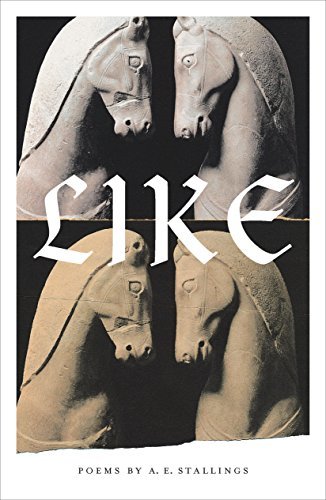What do you think?
Rate this book


141 pages, Kindle Edition
First published September 25, 2018
Scissors
Are singular, and plural, un-
Canny: one plus one is one;
Even in solitude, a pair,
Cheek to cheek, or on a tear,
Knives at cross-purposes, bereaving
Cleavers to each other cleaving:
Open, shut; give and take,
All dichotomy in their wake.
What starts with sighs, concludes in “or”s:
His or hers; mine or yours:
Divvy up. Slice clean, slice deep,
In pinked jags, or one swift sweep,
The crisp sheet where they met and married,
The paper where the blades are buried.
Now from its centuries-dark archway pour,
And back again there dive,
A host of stings: the sweetness-hoarding
Wild black bees. They hive
Here in the hollow in the rocks
Upon which leans the bridge,
And gather gold dust for their queen
Out over hills pockmarked with looted tombs,
Across aeons that span from ridge to ridge.
Woolgathering afternoon:
All I’ve accomplished, all,
Is to untangle a wine-dark skein
And coil it into a ball.
I did not knit a swatch
For gauge—or cast a stitch—
Or pick a plausible pattern out,
I just unworked one hitch
After another, and went
Brailling along the maze,
Over, under, twist and turn,
To where the ending frays.